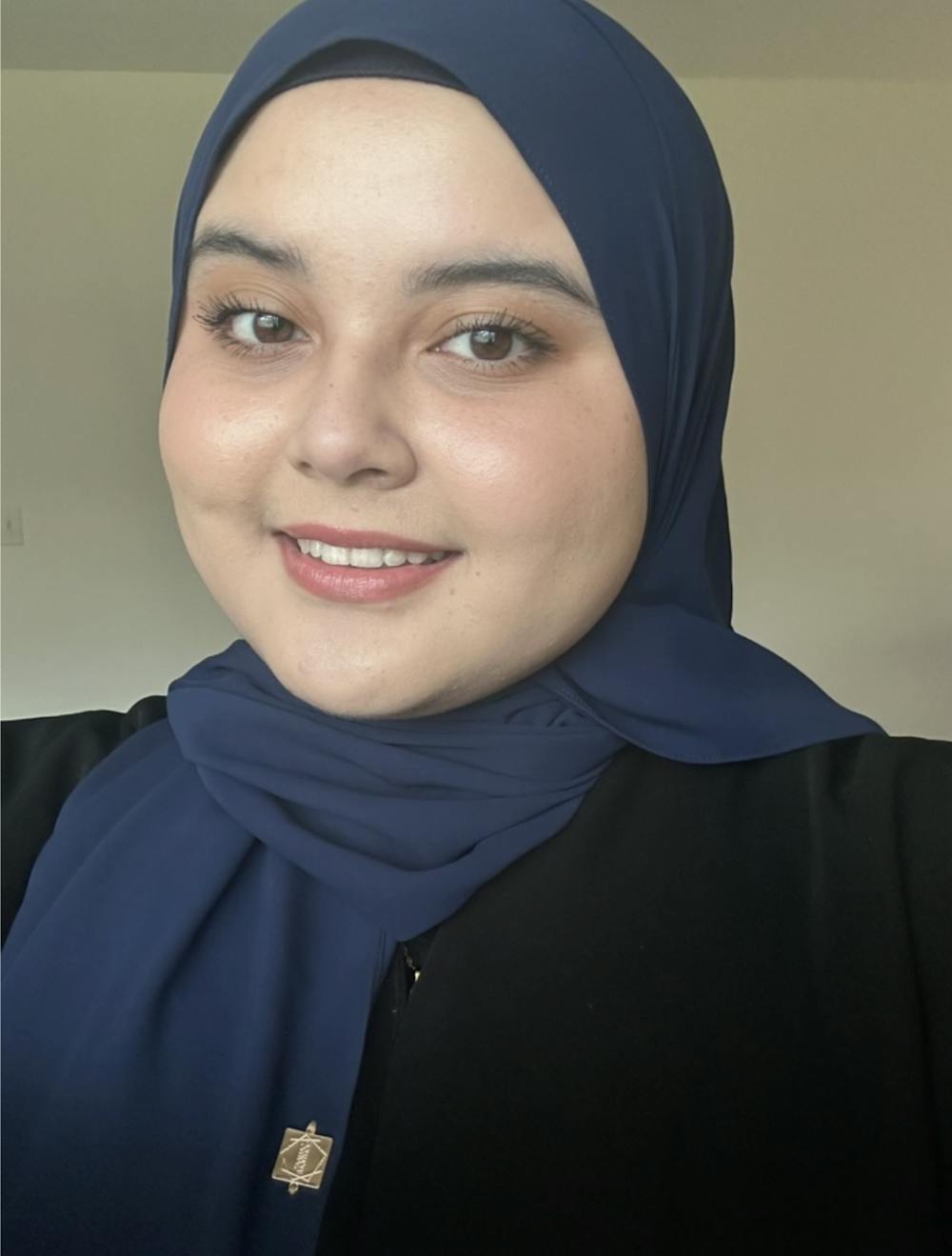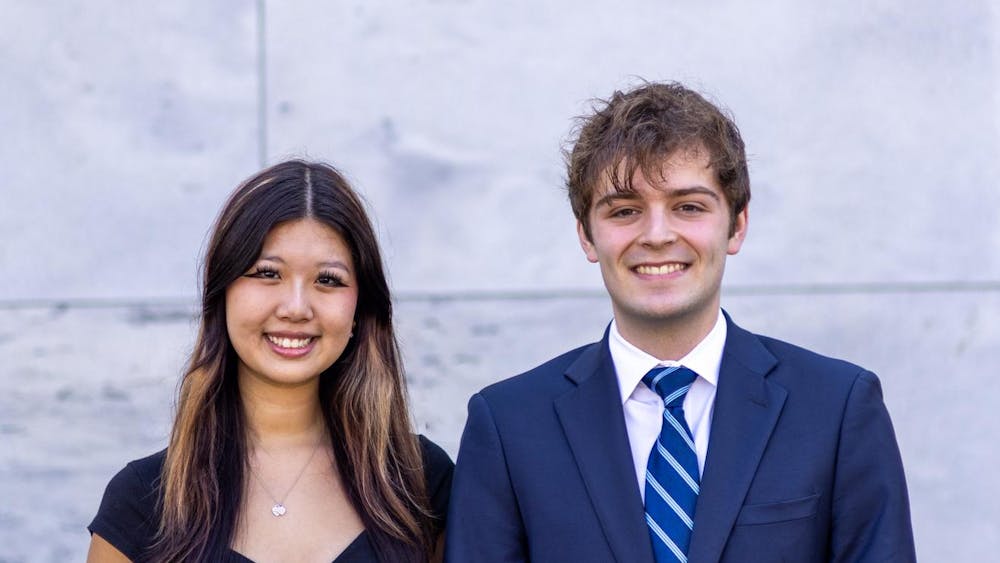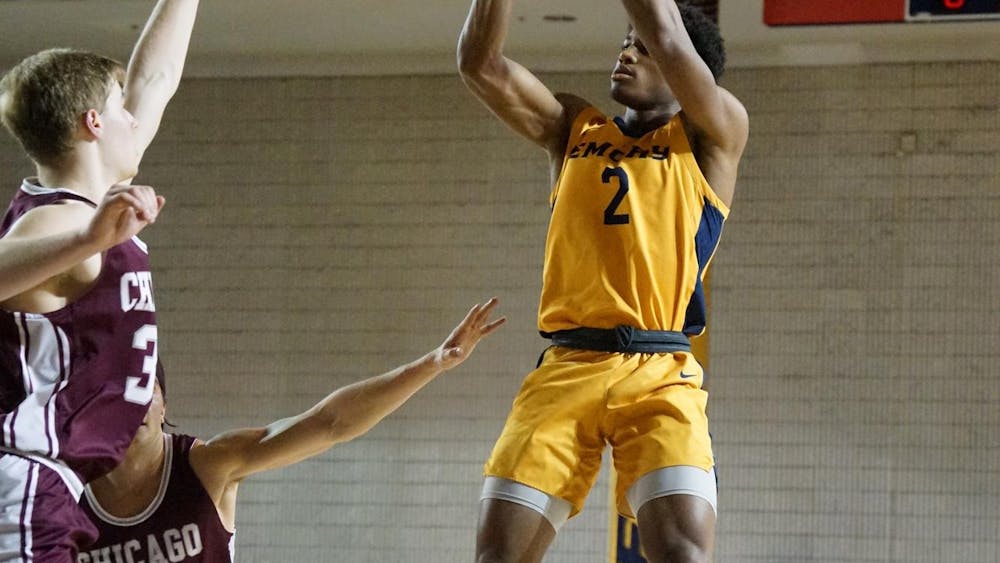Growing up as a third culture kid — someone raised in a culture other than that of their parents or country of their nationality — I learned how to navigate between worlds at a young age. As an American raised in Busan, South Korea, I attended the same school from first grade through high school, where I got used to switching between the language of school and the language my family spoke. My mom was a teacher at my school, so seeing her during lunch breaks, walking past her classroom between periods or riding home together in the afternoons added a sense of comfort to my hectic days. Her presence wove my school and home lives together, making everything feel more connected and familiar.
As I applied to college, I learned about the QuestBridge application. I had never heard of the program before, but something about it felt right. QuestBridge is a national nonprofit that connects high-achieving, low-income students with top colleges. When I matched with Emory University, it opened a path I had not imagined possible.
The day I left Korea was the first time I had ever traveled alone. Leaving everything behind for Emory was exciting, but also a terrifying leap into the unknown. I remember hugging my grandparents goodbye, holding back tears and dragging two heavy suitcases through the airport. I had stuffed them with snacks from home, photos of family and friends and memories of home, hoping to make a new place feel less foreign. Although I was born in the United States, I spent my entire life in Busan. At home, I was raised in a mix of American, Korean, Palestinian and Russian cultures, each shaping my identity in different ways. Still, my connection to American culture was second-hand until I arrived at Emory, a place that felt both personal and unfamiliar all at once.
My first sense of stability at Emory came from the people I met in Alabama Hall, my first-year year dorm. I joined the Residence Hall Association and served as president, pulling me into a small but meaningful community.
Through late-night events, afternoons spent decorating common spaces and spontaneous hallway conversations, I met the first people who made Emory feel less overwhelming. I had not expected to find that kind of connection and belonging in my dorm, and I will always be grateful for the comfort and home it gave me when everything else felt new.
Even so, there were moments when I felt adrift. Being half Palestinian and Russian-Korean, I have always lived between cultures. In Korea, I was used to being visibly different, but there I had family and familiarity. In Atlanta, without that support system, I often found myself craving deeper connections and wanting to be part of something that did not just include, but truly understood, me.
That understanding came during the Emory protests in April 2024. As global tensions rose and conversations around justice deepened, the Emory community responded with empathy and action. Students, professors and faculty came together — marching, organizing and advocating for my people. In a time when I felt heavy with grief far from home, I saw my peers choosing love and solidarity in the face of violence and silence. Professors carried signs. Faculty held space. Students comforted one another with quiet understanding. It was the first time I felt embraced not only as a student, but as a Palestinian, a Korean and someone carrying the weight of multiple histories. That week, Emory became more than a place of learning. It became a place where I felt seen and safe, even as police used pepper balls on students and faculty, arrested members of our community and silenced student voices for an entire year, failing to see Palestinians as human.
Although I had always been active on campus by organizing diversity initiatives, leading cultural programming and supporting peer advocacy, something shifted after that experience. I began engaging more intentionally, bringing more of myself—my family, my multilingual home, my mixed heritage, and the stories I once kept to myself—into the spaces I was part of. I opened up in new ways, sharing honestly about my identity and the nuances of growing up across cultures. I also listened more deeply, with care and curiosity. Emory did not change overnight, but eventually, it stopped feeling like a place I had to fit into and began to feel like one that welcomed all of who I am.
Now, as I prepare to graduate, I think back to the girl who packed two suitcases and left everything she knew for something she could not yet imagine. I am proud of her for taking that leap. I am grateful for the friends who showed up with snacks and laughter when I was homesick and for the small, quiet moments that reminded me I did not need to shrink myself to belong. There were still times when Emory made me feel like I had to choose between parts of who I am. But in the relationships I built and the spaces we created, I found moments where I could exist fully and unapologetically. Those moments gave me the strength to keep showing up, even when the institution did not. And, somewhere between welcome dinners, hallway conversations and protest chants, I found a version of myself I am proud of — grounded in my values, connected to my communities and ready for whatever comes next.
Hidaya Mansour is from Los Angeles and Busan, South Korea, and majored in business and philosophy, politics and law at Emory. During her time at Emory, Mansour served as vice president of member engagement and assistant vice president of advocacy and programming for the Residence Hall Association. She also managed finances for the Emory Muslim Students Association and participated in an immersive philanthropy and grantmaking program focused on addressing inequity in Atlanta through her philanthropy lab. After graduation, she plans to attend law school in California, where she hopes to pursue a career in corporate law and continue her advocacy work.










